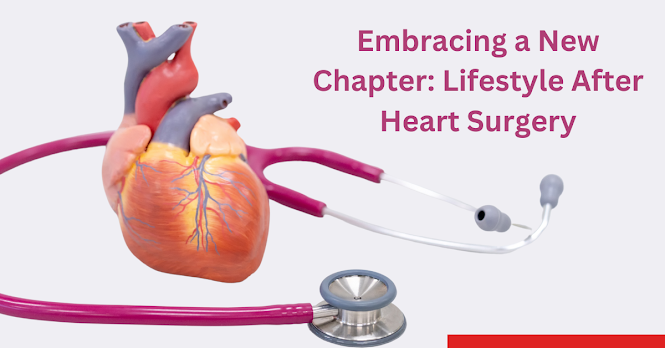Embracing a New Chapter: Lifestyle After Heart Surgery
Physical Activity and Exercise
Regular physical activity is paramount for a healthy heart and overall well-being. However, after heart surgery, it is crucial to gradually ease back into an exercise routine while adhering to the guidelines provided by your healthcare team. Initially, light activities such as walking and stretching can help rebuild strength and endurance. As your body adjusts, gradually increase the intensity and duration of your workouts. Engaging in exercises like swimming, cycling, and aerobic workouts can help strengthen your heart and improve cardiovascular fitness.
Balanced and Heart-Healthy Diet
Maintaining a balanced and heart-healthy diet is vital for optimal recovery and long-term well-being. Consume a diet high in nutrient-dense foods, such as fresh produce, whole grains, lean meats, and healthy fats. Limit your intake of cholesterol, sodium, added sweets, saturated and trans fats. Incorporate foods high in omega-3 fatty acids like fatty fish, nuts, and seeds, as they provide numerous cardiovascular benefits. Additionally, be mindful of portion sizes and practice mindful eating to savor your meals and prevent overeating.
Medication Adherence and Regular Check-ups
Following heart surgery, your Cardiologist will prescribe medications to manage your condition effectively. Adherence to medication schedules is crucial to control blood pressure, cholesterol levels, and prevent complications. Set reminders, use pill organizers, and establish a routine to ensure you take your medications as prescribed. Furthermore, attend regular check-ups with your healthcare provider to monitor your progress, discuss any concerns, and adjust your treatment plan as necessary.
Stress Management and Emotional Well-being
Coping with the emotional aftermath of heart surgery is an integral part of the recovery process. Feelings of anxiety, depression, or fear are not uncommon. Seek support from loved ones, join support groups, or consider professional counseling to help manage these emotions effectively. Engaging in stress-reducing activities such as meditation, deep breathing exercises, yoga, or hobbies you enjoy can promote emotional well-being and aid in the healing process.
Smoking Cessation
If you were a smoker before heart surgery, quitting smoking is crucial to improve your heart health and reduce the risk of complications. Smoking cessation offers numerous benefits, including enhanced lung capacity, improved blood circulation, and decreased chances of future heart problems. Consult your healthcare provider for guidance and explore smoking cessation programs, nicotine replacement therapies, or medications to support you in your journey toward becoming smoke-free.
Learn more about Why Consulting a Heart Specialist is Essential?
Supportive Social Network
A robust support system plays a vital role in the recovery and maintenance of a healthy lifestyle after heart surgery. Surround yourself with supportive friends, family, and loved ones who encourage your efforts to adopt heart-healthy habits. Share your journey with them, as their understanding and assistance can provide the motivation and accountability needed to stay on track.
Life after heart surgery is an opportunity to embrace positive changes and prioritize your heart health. By incorporating regular physical activity, adopting a balanced diet, adhering to medication schedules, managing stress, quitting smoking, and building a strong support system, you can embark on a fulfilling and healthy journey. Remember, every step you take towards a heart-healthy lifestyle is an investment in your long-term well-being, allowing you to enjoy a life filled with vitality and happiness.




Comments
Post a Comment